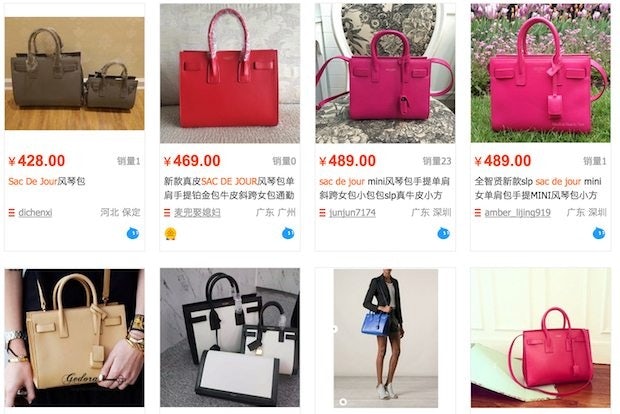
This article was published earlier in our weekly newsletter. Sign up through our “Newsletter Sign Up” box on the right.
As Alibaba continues to make efforts to convey the image that it’s doing its best to fight the scourge of counterfeit goods on its platforms, a recent controversy over its admission to the world’s largest anti-counterfeiting organization shows that it still has its work cut out for it to convince luxury brands.
After Alibaba was admitted to the Washington-based International AntiCounterfeiting Coalition (IACC) last month, it’s been facing a growing backlash from luxury brand members who oppose its membership. Yesterday, the Associated Press reported that members sent an anonymous email to the group’s board threatening that a majority of brands would quit the organization if Alibaba was allowed to continue as a member of the group. The news of the email broke on the same day that Tiffany & Co. announced its resignation from the organization, following Gucci earlier this week and Michael Kors last month.
While Tiffany & Co. has not publicly revealed its reason for quitting, Michael Kors was much more blunt, stating that the organization was providing “cover to our most dangerous and damaging adversary” by allowing Alibaba to join. Meanwhile, Gucci and other Kering brands are currently suing Alibaba in a New York court over counterfeits, and IACC’s vice president told AP that Gucci quit the organization because it was “not happy about Alibaba joining.”
In spite of all the controversy, Alibaba is still working to convince brands that it’s doing what it can to fight fakes. In addition to announcing a variety of heightened efforts and more staff to fight counterfeits over the past few years, Alibaba has worked with the IACC to set up a “MarketSafe” program to report and take down counterfeits, which the IACC has said has resulted in the closure of 5,000 storefronts and removal of 160,000 product listings by counterfeit sellers on Taobao and Tmall.
Alibaba also announced last week that it is requiring all sellers of luxury goods on Taobao to prove product authenticity or risk being shut down by May 20, according to Chinese media. The company said it will now require invoices, receipts, or letters of authorization before items are listed.
This announcement came after China’s government announced last week that it will be stepping up its fight against online counterfeits. The State Administration for Industry and Commerce announced that it is running a new campaign against online counterfeits from May to September, saying it will increase oversight and give out harsher punishments to offenders.
For now, the IACC is still embracing Alibaba as it remains in the “General Member” category of the organization, which was created for companies that are not directly impacted by counterfeiting. Jack Ma will have a chance to make his case to (remaining) members as a speaker at its spring conference later this month, although it's safe to say he'll have a tough crowd to please
For an in-depth look at the market for online counterfeits in China, download Jing Daily's recent report.